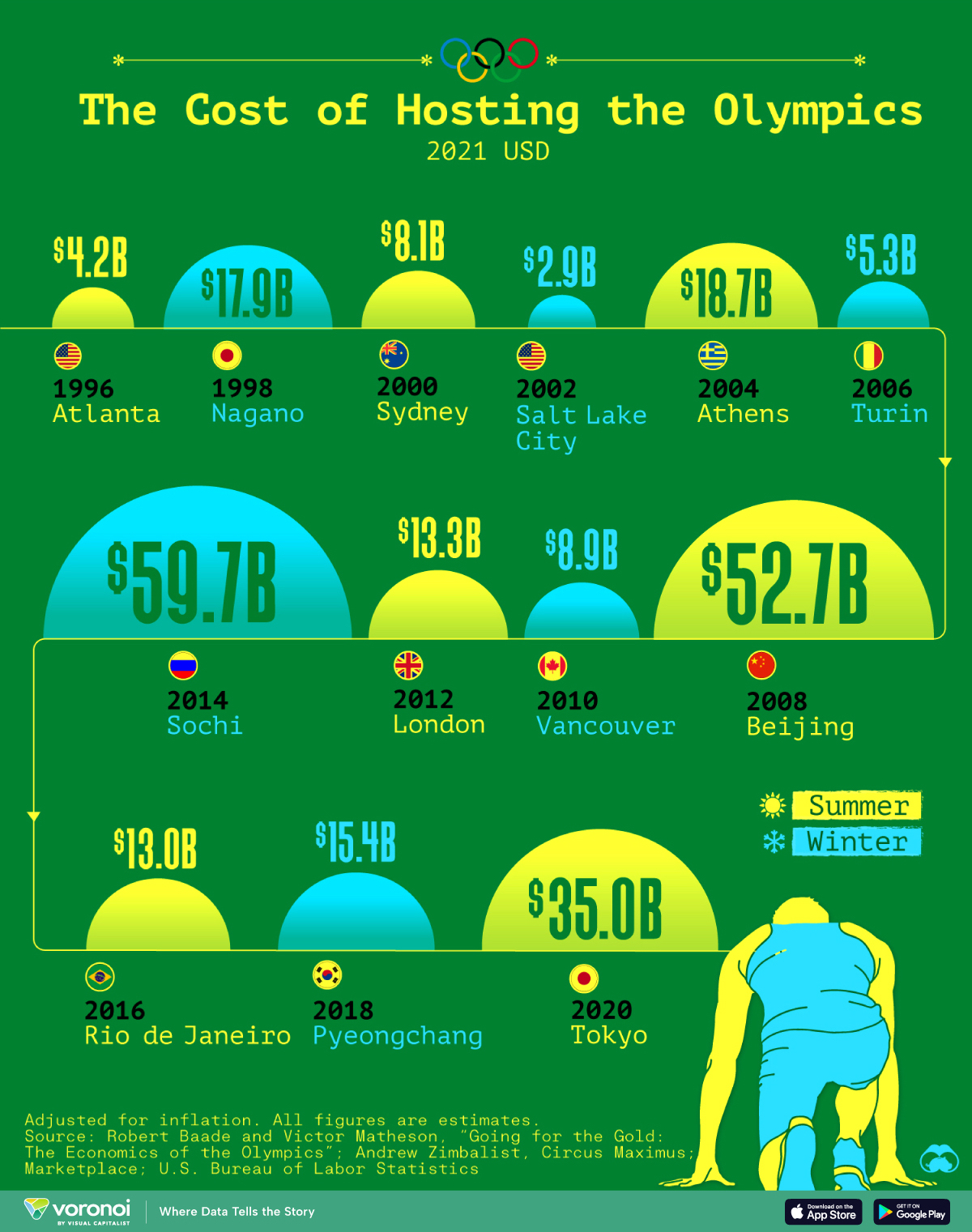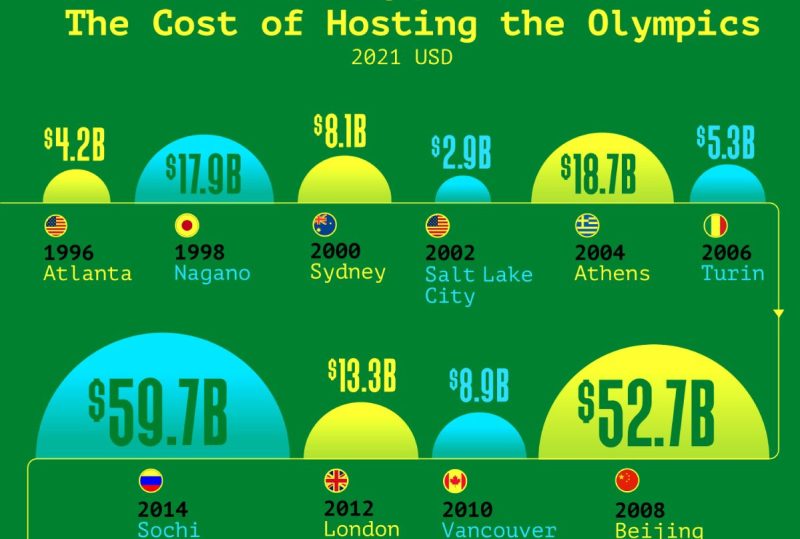
The Olympics cost so much to host that one has to wonder if it’s even worth it to be the host country. Additionally, the Olympics seem to have lost quite a bit of their luster, at least in America, over the last decade plus.
This article was written by Marcus Lu and originally published by the Visual Capitalist.
The Paris Olympics are estimated to cost over $9 billion to host, making them one of the less expensive Summer Oylmpic Games in recent memory.
This graphic lists the estimated cost of hosting the Olympics (Summer and Winter) in 2021 USD. It goes back to the 1996 Atlanta Summer Olympics. The figures come from various sources and were accessed via the Council on Foreign Relations.
Costly Infrastructure
The cost of hosting the Olympics has varied massively in recent years, from Sochi’s $59.7 billion to Salt Lake City’s $2.9 billion (2021 USD).
| Year | Country | City | Summer/Winter | Cost (2021 USD) |
|---|---|---|---|---|
| 1996 |  U.S. U.S. |
Atlanta | Summer | 4.2 |
| 1998 |  Japan Japan |
Nagano | Winter | 17.9 |
| 2000 |  Australia Australia |
Sydney | Summer | 8.1 |
| 2002 |  U.S. U.S. |
Salt Lake City | Winter | 2.9 |
| 2004 |  Greece Greece |
Athens | Summer | 18.7 |
| 2006 |  Italy Italy |
Turin | Winter | 5.3 |
| 2008 |  China China |
Beijing | Summer | 52.7 |
| 2010 |  Canada Canada |
Vancouver | Winter | 8.9 |
| 2012 |  United Kingdom United Kingdom |
London | Summer | 13.3 |
| 2014 |  Russia Russia |
Sochi | Winter | 59.7 |
| 2016 |  Brazil Brazil |
Rio de Janeiro | Summer | 13.0 |
| 2018 |  South Korea South Korea |
Pyeongchang | Winter | 15.4 |
| 2020 |  Japan Japan |
Tokyo | Summer | 35.0 |
One of the biggest costs associated with hosting the Olympics is infrastructure. This includes sports facilities such as arenas and general infrastructure like housing and transportation.
This is typically higher for summer games, which can attract hundreds of thousands of tourists.
The International Olympic Committee requires cities to have at least 40,000 hotel rooms for spectators and an Olympic Village that can house 15,000 athletes and officials.
As a result, despite generating billions of dollars in revenue, the Olympics can leave a negative legacy for a host city if not carefully planned or executed.
For example, a report by the University of Birmingham concluded that the most expensive event—Sochi in 2014—left the Russian resort vastly overdeveloped relative to its actual occupancy levels. The report estimates that over a billion dollars of follow-up investment is required to maintain the underused infrastructure, including transport networks, sporting venues, and hotels.





